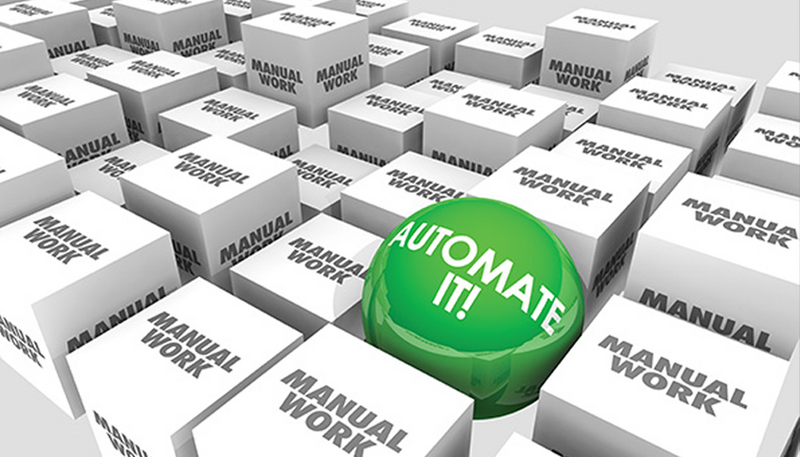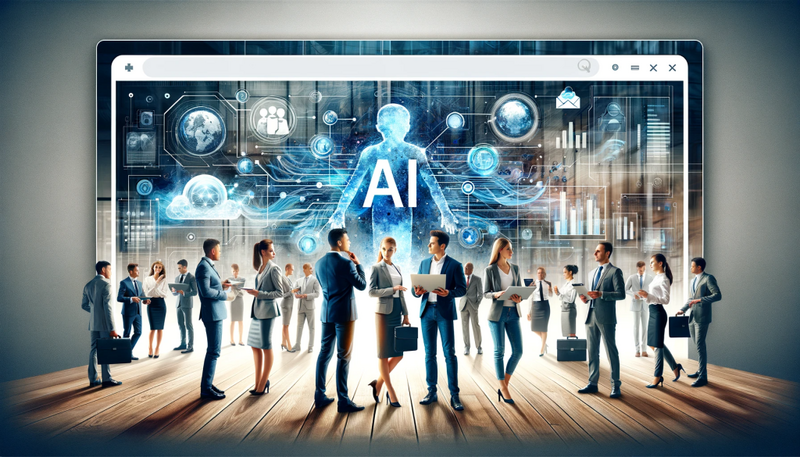In today's rapidly evolving business landscape, efficiency is not just a competitive advantage but a necessity. As businesses grow and technology advances, the integration of Artificial Intelligence (AI) has emerged as a powerful tool to streamline workflows across various industries. AI integration services offer businesses the opportunity to automate tasks, enhance decision-making processes, and ultimately drive productivity gains. This blog explores the transformative impact of AI integration services on workflow optimization, highlighting key benefits, challenges, and practical considerations.
Understanding AI Integration Services
AI integration services encompass the incorporation of AI technologies into existing business processes and systems. This integration can range from simple automation tasks using machine learning algorithms to complex AI-driven analytics and predictive modeling. The goal is to leverage AI's capabilities to improve operational efficiency, reduce manual effort, and enable faster, data-driven decision-making.

Key Benefits of AI Integration Services
Automation of Repetitive Tasks: One of the primary benefits of AI integration is its ability to automate repetitive and mundane tasks. AI-powered systems can handle data entry, document processing, customer inquiries, and more, freeing up valuable human resources for higher-level strategic activities.
Enhanced Decision Making: AI's analytical capabilities allow businesses to make more informed decisions based on real-time data analysis and predictive insights. By integrating AI into workflows, organizations can optimize processes, identify trends, and respond swiftly to market changes.
Improved Customer Experiences: AI integration enables personalized customer interactions through chatbots, recommendation engines, and sentiment analysis. This leads to enhanced customer satisfaction and loyalty by providing timely and relevant responses to inquiries and feedback.
Cost Savings: By automating tasks and optimizing workflows, AI integration services can significantly reduce operational costs associated with labor, errors, and inefficiencies. This cost savings can be redirected towards innovation and growth initiatives.
Scalability: AI systems are inherently scalable, capable of handling increasing volumes of data and transactions without proportional increases in resources. This scalability is essential for businesses experiencing growth or seasonal fluctuations in demand.

Practical Applications of AI Integration Across Workplaces
Artificial Intelligence (AI) integration has transcended from a futuristic concept to a practical reality across various workplaces today. As businesses seek to optimize operations, improve decision-making processes, and enhance productivity, AI integration plays a pivotal role in transforming how work gets done. This blog explores the practical applications of AI integration across different workplace settings, highlighting specific examples and the impact on efficiency, innovation, and employee engagement.
AI in Administrative Tasks
AI excels in automating routine administrative tasks, allowing employees to focus on more strategic initiatives. Practical applications include:
Data Entry and Processing: AI-powered tools can automatically extract data from documents, emails, and forms, reducing manual data entry errors and accelerating workflow processes.
Scheduling and Calendar Management: AI assistants can analyze calendars, prioritize meetings, and suggest optimal scheduling to streamline time management for employees.
Document Management: AI systems utilize natural language processing (NLP) to categorize, archive, and retrieve documents efficiently, improving accessibility and organization.
AI in Customer Service and Support
Enhancing customer interactions through AI-driven solutions improves service delivery and satisfaction:
Chatbots and Virtual Assistants: AI-powered chatbots handle customer inquiries, provide real-time support, and resolve common issues, enhancing responsiveness and availability.
Voice Recognition: AI enables voice-enabled systems for customer service interactions, offering personalized experiences and improving communication efficiency.
Sentiment Analysis: AI analyzes customer feedback and sentiment to gauge satisfaction levels, identify trends, and proactively address concerns.

AI in Marketing and Sales
AI integration revolutionizes marketing and sales strategies, driving targeted campaigns and improving conversion rates:
Predictive Analytics: AI algorithms analyze customer data to predict buying behavior, optimize marketing campaigns, and personalize content delivery.
Lead Scoring and Management: AI-powered systems automate lead scoring based on behavior and demographics, prioritizing sales efforts and improving lead conversion rates.
Recommendation Engines: AI algorithms suggest personalized product recommendations based on customer preferences and past behavior, enhancing cross-selling and upselling opportunities.
AI in Human Resources
AI transforms HR functions, optimizing recruitment, employee engagement, and talent management:
Recruitment Automation: AI tools screen resumes, conduct initial interviews, and recommend candidates based on skills and cultural fit, streamlining the hiring process.
Employee Onboarding: AI-driven platforms provide personalized onboarding experiences, delivering relevant information and training resources tailored to new employees.
Performance Management: AI analytics assess employee performance, provide actionable insights for development, and predict retention risks based on behavior patterns.
AI in Operations and Logistics
AI enhances operational efficiency and logistics management across industries:
Supply Chain Optimization: AI algorithms forecast demand, optimize inventory levels, and improve logistics planning to minimize costs and enhance delivery efficiency.
Predictive Maintenance: AI-enabled IoT sensors monitor equipment performance, predict maintenance needs, and prevent downtime, ensuring operational continuity.
Quality Control: AI-powered image recognition and data analysis identify defects in real-time, improving product quality and reducing waste in manufacturing processes.
AI in Healthcare
In the healthcare sector, AI integration supports medical professionals with advanced diagnostics, patient care, and research:
Medical Imaging Analysis: AI algorithms analyze medical images for diagnostics, identifying anomalies and assisting in treatment planning with greater accuracy.
Personalized Medicine: AI integrates patient data to personalize treatment plans, predict outcomes, and recommend tailored therapies based on genetic profiles and health records.
Healthcare Management: AI streamlines administrative tasks, automates billing and coding processes, and improves patient scheduling and resource allocation.

Challenges and Considerations
While AI integration offers significant benefits, businesses must address challenges such as data privacy, ethical concerns, and the need for specialized skills in AI development and management. Implementing robust data protection measures, ensuring AI transparency and fairness, and investing in training programs are crucial for successful AI integration across workplaces.
Future Trends in AI Integration
Looking ahead, advancements in AI technologies such as explainable AI (XAI), edge computing, and AI-as-a-Service (AIaaS) will continue to shape workplace integration. These innovations will democratize access to AI capabilities, enhance scalability, and drive further efficiencies across diverse industries.
Conclusion
AI integration is not just a technological upgrade but a transformative force reshaping workplaces worldwide. By automating tasks, enhancing decision-making processes, and improving overall efficiency and innovation, AI empowers organizations to achieve sustainable growth and competitive advantage. As businesses navigate the complexities of AI integration, those embracing AI technologies strategically and ethically will lead the way in driving innovation, fostering employee engagement, and delivering exceptional value to customers in the digital era.
Newsletter to recieve
our latest company updates
Comment